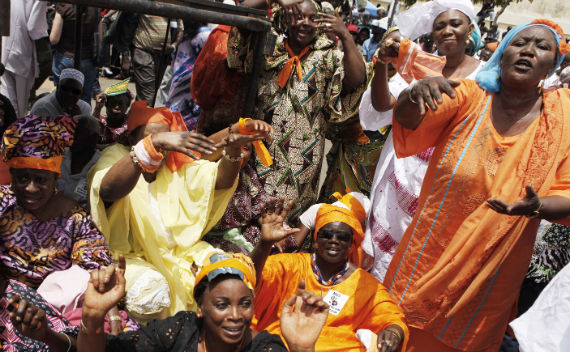Unrest in Senegal
More on:

Kate Collins, a special assistant here at CFR, has written about the recent unrest in Senegal. Initially, protests were sparked on June 23 by octogenarian president Abdoulaye Wade’s attempt to change the constitution so that a candidate could win with only 25 percent of the vote (as opposed to requiring a runoff) if his total was higher than that of any other candidate. The amended constitution would also establish the office of vice president in which, according to the BBC, Wade would likely try to install his son. While Wade has subsequently backed away from amending the constitution, this Saturday protesters gathered again to oppose his announcement that he would seek a third term. The constitution allows for only two terms, but Wade and others have argued he can run for a third term because he was elected before the constitution establishing term limits was put in place.
At the same time, “backers” of Wade gathered to show their support for the president. Reuters quoted one attendee as saying that he had been promised payment for attending the rally.
Senegal is often considered a West African success for it relative stability and the peaceful democratic transfer of power to Wade in 2000. Unfortunately, eighty-five year old Wade’s quest for a third term, and rumors about Wade’s desire for his son to lead the country, do not bode well for the orderly and democratic transfer of executive authority.
Read Kate’s article here.
More on:
 Online Store
Online Store